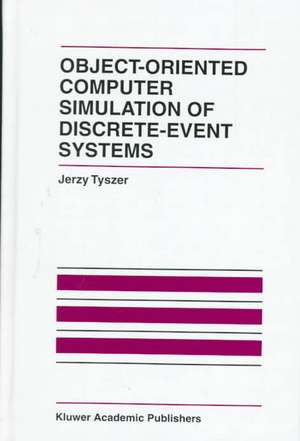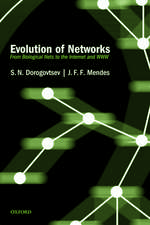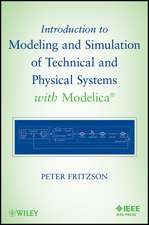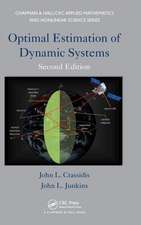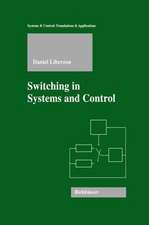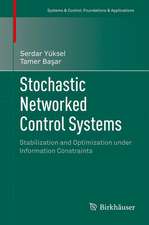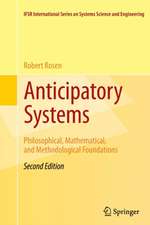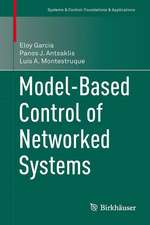Object-Oriented Computer Simulation of Discrete-Event Systems: The International Series on Discrete Event Dynamic Systems, cartea 10
Autor Jerzy Tyszeren Limba Engleză Hardback – 31 mai 1999
Object-Oriented Computer Simulation of Discrete-Event Systems demonstrates the basic and generic concepts used in computer simulation of discrete-event systems in a comprehensive, uniform and self-contained manner.
| Toate formatele și edițiile | Preț | Express |
|---|---|---|
| Paperback (1) | 1379.21 lei 6-8 săpt. | |
| Springer Us – 26 oct 2012 | 1379.21 lei 6-8 săpt. | |
| Hardback (1) | 1385.54 lei 6-8 săpt. | |
| Springer Us – 31 mai 1999 | 1385.54 lei 6-8 săpt. |
Preț: 1385.54 lei
Preț vechi: 1689.68 lei
-18% Nou
Puncte Express: 2078
Preț estimativ în valută:
265.13€ • 277.51$ • 220.67£
265.13€ • 277.51$ • 220.67£
Carte tipărită la comandă
Livrare economică 31 martie-14 aprilie
Preluare comenzi: 021 569.72.76
Specificații
ISBN-13: 9780792385066
ISBN-10: 0792385063
Pagini: 276
Ilustrații: XIV, 258 p.
Dimensiuni: 155 x 235 x 20 mm
Greutate: 0.57 kg
Ediția:1999
Editura: Springer Us
Colecția Springer
Seria The International Series on Discrete Event Dynamic Systems
Locul publicării:New York, NY, United States
ISBN-10: 0792385063
Pagini: 276
Ilustrații: XIV, 258 p.
Dimensiuni: 155 x 235 x 20 mm
Greutate: 0.57 kg
Ediția:1999
Editura: Springer Us
Colecția Springer
Seria The International Series on Discrete Event Dynamic Systems
Locul publicării:New York, NY, United States
Public țintă
ResearchCuprins
1 Getting started.- 1.1 Basic notions.- 1.2 Manual simulation.- 1.3 Activity scanning.- 2 Event scheduling.- 2.1 Main paradigm.- 2.2 ABC approach.- 2.3 Events versus activities.- 3 Event lists.- 3.1 Doubly linked linear list.- 3.2 Indexed linear list.- 3.3 Henriksen’s list.- 3.4 Two-level indexed list.- 3.5 Heaps.- 3.6 Splay trees.- 3.7 Run-time efficiency of event scheduling.- 4 Process interaction.- 4.1 Basic operations.- 4.2 Environment in C++.- 4.3 Distributed simulation.- 5 Random number generators.- 5.1 Uniform random variables.- 5.2 Statistical tests.- 5.3 Non-uniform variate generation.- 6 Design of simulation experiments.- 6.1 Validation of models.- 6.2 Analysis of variance.- 6.3 Linear regression.- 7 Collection and analysis of simulation results.- 7.1 Gathering of results.- 7.2 Transient phase characteristics.- 7.3 Estimation of steady-state phase characteristics.- 7.4 Variance reduction methods.- 8 Examples of simulation models.- 8.1 A simple preemptive system.- 8.2 A system with priorities and group servers.- 8.3 Assembly line.- 8.4 Finite-population queuing model.- 8.5 Satellite communication system.- 9 Epilog.- 10 Exercises.- A Probability distributions.- A.1 The standard normal distribution.- A.2 The Student’s t distribution.- A.3 The chi-square distribution.- A.4 The F distribution.- A.5 The Kolmogorov-Smirnov distribution.
